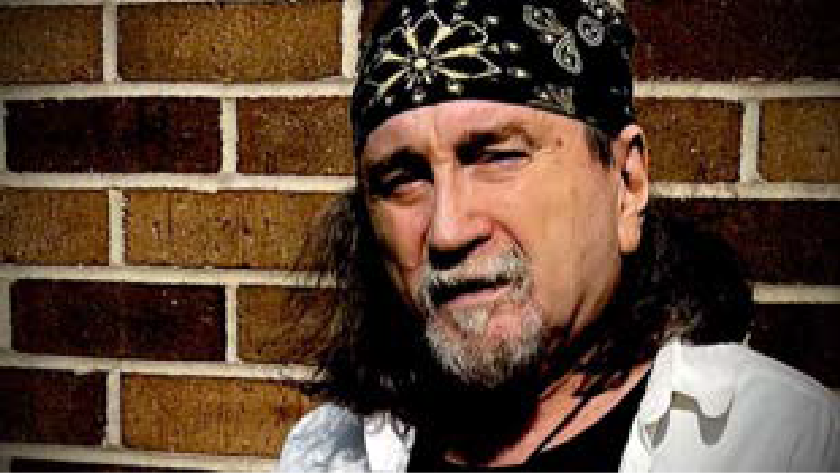Benjamin, formerly known as Ben Schultz, has been a well-known rock musician for more than 50 years, with a career that is both notably lengthy and varied. His extraordinary background as a composer and multi-instrumentalist has made him well-known. Benjamin has found motivation the notion put forth by Malcolm Gladwell in “Outliers” that excellence necessitates at least 10,000 hours of practice. Check out the exclusive interview below:
1. Can you tell us a bit about where you come from and how it all got started?
Benjamin: I’m originally from New York City, and coincidentally, “I was born on Broadway” on the Lower West Side. I was always banging on things, trash cans, the rug, and chairs from early on (my parents told me) until I started “banging” on my mother’s baby grand piano at the age of just past 2. We moved from New York to St. Petersburg, Fla., when I was 3. I began taking formal piano lessons at a young age, around four years old if memory serves. By the time I was 5, I had added playing the metal office trash can with chopsticks. After moving to Ruskin, Florida, I joined the elementary school band at the age of 7 and started playing the trumpet. That same year, I picked up the guitar. At the time, I was really into Herp Alpert and his song “The Lonely Bull” on the trumpet. The first song I learned to play on both the guitar and trumpet was…“Telstar” by The Tornadoes. I think I still have the printed sheet music somewhere. Of course, the Ventures, The Beatles, and The Stones followed soon after.
2. Did you have any formal training, or are you self-taught?
Benjamin: Both. Besides making noise, private tutoring, and elementary, and high school bands (trumpet and French horn), I went to Berklee College of Music, New England Conservatory, and studied with George Rusell. He changed the whole modality of the times. Pythagorean Intervals. Yeah right! He was hangin’ with Art Farmer, Theolonius Monk, and Sun Ra…was quite the pathbreaker for Miles Davis, John Coltrane, and Bill Evans. My brain literally shut down after improvising on Stravinsky’s “Rights of Spring.” I still study both methods—experimentation and discovery- and revisit the music of my mentors, there are quite a few of them.
3. Who were your first and strongest musical influences, and why the name ‘Benjamin?
Benjamin: I believe my previous answers are the start. (please see question 1 answers) Then add Thad Jones/Mel Lewis Big Band, Randy California, Jimi Hendrix, Eric Clapton, Jeff Beck, The Animals, Al Kooper, Howlin’ Wolf, Muddy Waters, BB King, Freddie King, Duane and Gregg Allman, Buddy Miles, Stevie Wonder, Stephen Stills, Carmine Appice and Tim Bogert, Steve Lukather and then Leland Sklar…all (but 3) I have had the honor to work beside or be in bands with. why the name ‘Benjamin?: My former moniker was simply my name, Ben Schultz. I discovered one night while being introduced onstage, “on guitar…etc”, that all you could hear were two words sounding like someone yelling through a sock. The light bulb went off, and I realized why no one knew me after a gig or even knew me as an artist outside the biz. I am rebranding to Benjamin.
4. What do you feel are the key elements in your music that should resonate with listeners, and how would you personally describe your sound?
Benjamin: I have been told my music and playing style is a journey, ebbing and flowing, not unlike an intense roller-coaster ride into the unknown. FYI, that’s not me speaking. I’ve heard those exact words and some other very, very cool references. My sound? Hmmmm???. Scientifically, I guess it’s a stew of all my heroes. Without waving my flag, I haven’t heard anyone else sounding like me today, which I guess is a good thing, but you can definitely hear where my style came from.
5. For most artists, originality is first preceded by a phase of learning and, often, emulating others. What was this like for you? How would you describe your own development as an artist and music maker, and the transition towards your own style, which is known as POP?
Benjamin: Is it POP? I don’t know. It’s MUSIC. Since I’m not a lead singer, I approach my instrumentals like I was a great singer…blues or crooner. In my compositions, where I have great guest singers, I have arranged, produced, and played to make them shine. In doing that, I hope the respect I have for my craft is understood.
6. What’s your view on the role and function of music as political, cultural, spiritual, and/or social vehicles – and do you try and affront any of these themes in your work, or are you purely interested in music as an expression of technical artistry, personal narrative, and entertainment?
Benjamin: I’m a messenger, at least I hope I am. These (my) talents are gifts. Of course, there are feelings and opinions that emote the musical response within me as I’m composing. Am I able to deliver and pass this on to others? I do not know. I pray that I’m able. (laughingly said) “Technical artistry”, now there’s a modern oxymoron looking for a conundrum. Any muso worth their salt can do things way beyond the ability of the audience to comprehend. What’s the point (to ask)? Lol.
7. Do you feel that your music is giving you back just as much fulfillment as the amount of work you are putting into it, or are you expecting something more or different in the future?
Benjamin: The music “giving back” to me is shown by how others respond, whether they make suggestions or just give a thumbs up. Since my circle is very small these days, those responses are limited to my colleagues, and…I listen to them. What I really do miss, and am hoping for in the future, is “hittin’ the note” in front of a live audience again. I started like everybody did, playing in clubs. My niche since became being the guy behind the glass: being in a “bubble of one.”
8. Could you describe your creative processes? How do you usually start and go about shaping ideas into a completed song? Do you usually start with a tune, a beat, or a narrative in your head? And do you collaborate with others in this process?
Benjamin: I noodle (on my guitar) until something clicks, and my brain goes: “That’s pretty f’n cool.” I have concepts and ideas for others that I want to write. Those ideas, lyrics, and song titles are filed away in my iPhone reminders or music memos apps. After I go “F’n cool,” maybe some of them fit together. I miss the collaboration. You have no idea. I work best in a partnership.
9. What has been the most difficult thing you’ve had to endure in your life or music career so far?
Benjamin: Being alone.
10. On the contrary, what would you consider a successful, proud, or significant point in your life or music career so far?
Benjamin: jamming with Jimi Hendrix, Steven Stills making me play bass, having all those cats who saw something in me when I opened for them (BB King, Freddie King, Howlin Wolf, Muddy Waters) and proceeded to hand me their guitars as we got down to business, …and recently being blessed by those colleagues and friends who are on The Book OF Benjamin
KEEP IN TOUCH:
INSTAGRAM | TWITTER | SPOTIFY

